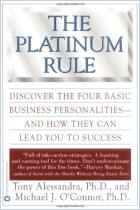加入 getAbstract 阅读摘要

加入 getAbstract 阅读摘要
Carl Gustav Jung
Psychological Types
Princeton UP, 1976
看看什么内容?
A classic, brilliant synthesis of philosophy, art, religious thought and science, culminating in the archetypal tool set for understanding yourself and others.
Recommendation
In his most famous and influential work first published in 1921, Carl Jung introduces the terms “introvert” and “extravert.” He developed his typologies to examine cognitive differences in depth – types that have since generated endless debate and psychological assessment tools. His deep, difficult text – written in the early 20th-century vernacular – demands careful reading and reflection to properly understand his intentions. Jung implores you not to label or classify people summarily, but instead utilize his types to build self-awareness and understanding of others.
Summary
About the Author
Dr. Carl Jung (1875–1961) was a renowned Swiss psychoanalyst and founder of analytical psychology.




















Comment on this summary